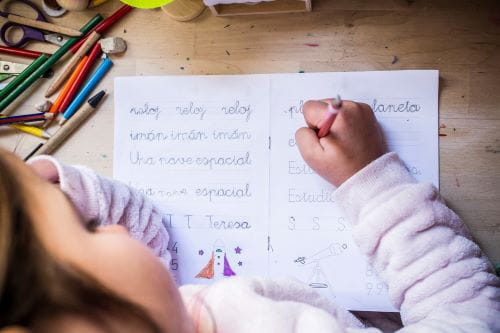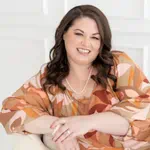In the interconnected world in which we live, affording children the opportunity to welcome and embrace diversity is nothing short of a necessity. Learning to connect and communicate with people of various cultural and ethnic backgrounds is immensely important, becoming essential to surviving and succeeding in a culturally enmeshed global society. The advantages of bilingual education are undeniable, ranging from increased cognitive functioning to furthered economic opportunities. Montessori schools like the Latin American Bilingual Montessori Public Charter School (LAMB) and Montessori Bilingual Academy of Rockledge (MBAR) have recognized the importance of bilingualism in today’s society. They have incorporated bilingual Spanish/English education programs that encourage and support their students’ natural absorption of the spoken language which Maria Montessori so frequently described.
Latin American Bilingual Montessori Public Charter School (LAMB)
Latin American Bilingual Montessori Public Charter School (LAMB) is located in Washington, D.C. and was born out of the Latin American Youth Center, an organization dedicated to supporting immigrant and low-income youth. It was founded by Montessori educators who believed that combining bilingual education and Montessori education would provide an incredible opportunity for both English- and Spanish-speaking students and families. Charis Sharp, LAMB executive director, reveals the benefits of a Montessori dual-language immersion program,
“A Montessori experience does incredible things to prepare a child and their brain for learning. So does learning a second language at a young age. The combination of the two is more than the sum of its parts. But it is more than that. It enriches the entire curriculum.”
LAMB uses the Maintenance Approach to bilingual education, affirming the students’ native language while providing the support necessary to allow students to become proficient in English. LAMB delivers its Montessori curriculum in Spanish and English. The exploration of grammar in both languages in parallel allows students to use comparison to deepen their understanding of the structure of language. Science lessons are presented in Spanish, requiring native English speakers to think critically in another language. Beyond the curriculum, LAMB’s structure deepens community connections. With staff from all over Latin America who are welcomed and encouraged to bring their culture to the school, LAMB hopes to create a safe space that builds appreciation for the experience of others.
Montessori Bilingual Academy of Rockledge (MBAR)
The Montessori Bilingual Academy of Rockledge (MBAR) in Rockledge, FL, also hopes to enrich their school community with multiculturalism as they celebrate different cultures and diversity through their dual-language immersion program. The program was developed by Melissa Bailey, originally from Venezuela, who wished to provide a bilingual education for her daughter. Having moved to the United States as a child, Melissa recognized the importance of understanding languages to not only communicate with others, but to understand the culture and customs of others in one’s community. According to Melissa, her hope was to create an environment “where children are immersed in Spanish conversation and have a solid Montessori education, where the child is free to explore.”
MBAR follows the Enrichment Model of bilingual education within which students are exposed to both English and Spanish daily in the classroom beginning at just 12 months old. Materials are presented in both languages and Spanish educators are engaging students in conversation throughout the day in the context of their daily lives. Additionally, the school offers structured Spanish lessons and incorporates written Spanish where appropriate. MBAR administrators believe that the benefits of this type of bilingual education program go far beyond language development; they capitalize on the child’s sensitive period for language, encouraging communication, cognitive skills, and problem solving abilities.
Bailey expresses that MBAR is beyond beneficial to its community as it “provides comfort for families that are nonnative English speakers, a sense of belonging in the school environment, where they know they can speak their maternal language and be understood, and have a sense of relief that their child does not have to be frustrated or lost if they do not speak English.” It is this sense of acceptance and understanding that truly makes a difference.
Montessori bilingual programs are helping communities to welcome and embrace diversity, truly making a difference in the lives of their staff and students. Montessori (2012, p. 66) emphasized the importance of placing children in prepared environments in which people “speak well and correctly, and… talk a great deal.” MBAR and LAMB are following Maria Montessori’s guidance, creating Spanish/English dual-language immersion programs that foster independent and bilingual lifelong learners by providing the exposure, support, and encouragement for language that children need during one of the most crucial periods in their development.
References
- Montessori, Maria. 2012. The 1946 London Lectures. The Netherlands, Montessori-Pierson Publishing Company, 148.
The opinions expressed in Montessori Life are those of the authors and do not necessarily represent the position of AMS.


